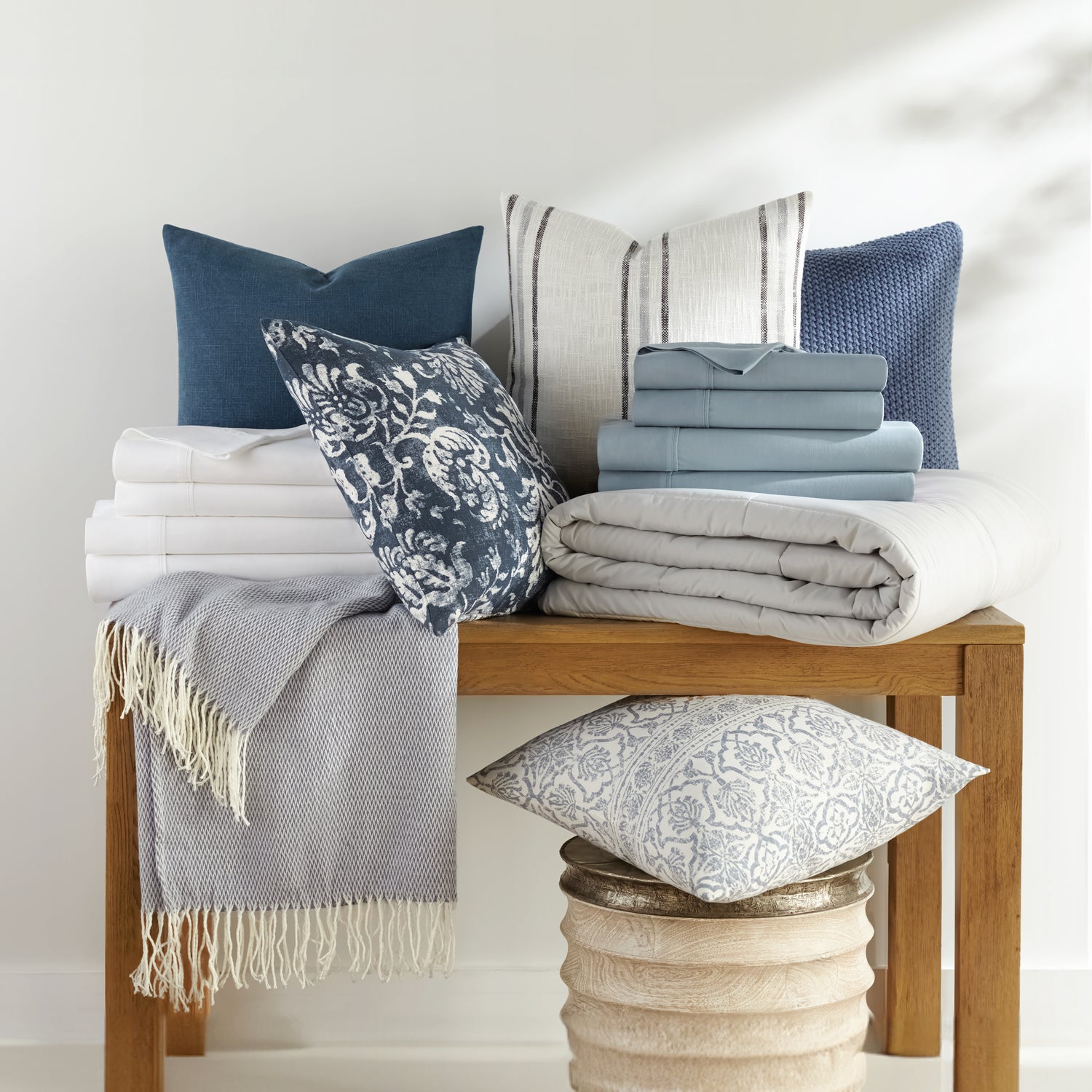What Is Turkish Cotton? Egyptian vs Turkish Cotton Explained
Turkish cotton bedding is often associated with luxury, comfort, and quality—but what exactly sets it apart from other types of cotton? If you’ve ever wondered why this material is praised by bedding lovers and home designers alike, you’re not alone. From how it feels to how it performs over time, there’s a lot that makes Turkish cotton unique.
In this guide, we’ll explore the qualities that define Turkish cotton, how it compares to other fabrics, and whether it’s the right fit for your sleep routine.
Table Of Contents
- What Makes Turkish Cotton Unique
- The Benefits of Turkish Cotton Bedding
- What’s the Difference Between Turkish Cotton and Regular Cotton?
- How It Compares to Egyptian and Pima Cotton
- Ideal Uses for Turkish Cotton
- Care Tips to Keep It Soft
- Is Turkish Cotton Bedding Worth It
- Choosing the Right Turkish Cotton Bedding
- Conclusion
What Makes Turkish Cotton Unique
Turkish cotton is harvested from the Aegean region, where the climate allows the cotton fibers to grow longer than average. These long fibers are the key to the softness and durability of the fabric.
Longer cotton fibers mean fewer joins in the yarn, creating a smoother and more comfortable texture. The result is bedding that feels soft to the touch and lasts longer over time. Turkish cotton is also slightly absorbent, which gives it a perfect balance between plushness and breathability.
The Benefits of Turkish Cotton Bedding
There are several reasons why Turkish cotton bedding is a favorite for many people. It’s known for its softness, without being too heavy. The fabric is durable and gets softer with each wash, making it a long-term investment for your bedroom.
It’s breathable and lightweight, keeping you comfortable year-round. It also has a natural sheen that gives it an elegant look without extra treatments.
What’s the Difference Between Turkish Cotton and Regular Cotton?
The main difference between Turkish cotton and regular cotton lies in the length and quality of the fibers. Turkish cotton feels smoother and becomes softer with each wash, while regular cotton may feel coarser and wear down over time. Regular cotton is also more prone to pilling, shrinking, and losing shape.
On the other hand, Turkish cotton resists these issues and holds up better with frequent use. While both can make comfortable bedding, Turkish cotton offers a noticeably more refined and long-lasting experience.
How It Compares to Egyptian and Pima Cotton
Turkish cotton is often compared to Egyptian and Pima cotton. All three are considered luxury materials, but there are some subtle differences. Egyptian cotton offers a dense, heavy feel, which is great for cooler climates but may be too warm for some. Pima cotton is soft and strong but usually has shorter fibers and a matte finish.
Turkish cotton falls in between the two. It’s dries faster than Egyptian cotton and feels lighter on the skin. For many, this balance of softness and practicality makes Turkish cotton a preferred option.
Ideal Uses for Turkish Cotton
While Turkish cotton is often associated with towels and robes, it also excels in the bedroom. It’s an ideal material for sheet sets, offering a soft, breathable surface for sleep. Duvet covers made with Turkish cotton are lightweight but cozy, great for layering with other bedding.
Pillowcases feel gentle against your skin and stay cool throughout the night. Turkish cotton blankets or throws provide light warmth without feeling too bulky. Over time, each piece gets softer, making it more comfortable the longer you use it.
Care Tips to Keep It Soft
Taking care of Turkish cotton bedding is simple if you follow a few basic steps. First, wash it with a mild detergent, avoiding bleach or fabric softeners, which can coat the fibers and reduce softness. Use cold or warm water rather than hot, as high heat can cause shrinkage.
When drying, use a low heat setting or air dry if possible to prevent the fabric from becoming too dry or stiff. Proper care keeps the fibers intact and helps the bedding get softer over time.
Is Turkish Cotton Bedding Worth It
If you want bedding that combines comfort, breathability, and durability, Turkish cotton is a great choice. It costs more than standard cotton, but the quality and longevity are worth the investment. It’s especially good for people who sleep hot, as it allows airflow and doesn’t trap heat like some synthetic materials.
It’s also an excellent option for anyone looking to add a touch of luxury to their sleep routine without high-maintenance care. Overall, the benefits of Turkish cotton make it a smart option for anyone who values both comfort and long-term value.
Choosing the Right Turkish Cotton Bedding
When shopping for Turkish cotton bedding, it helps to know what to look for:
- Choose products labeled 100% Turkish cotton to ensure authenticity
- Look for trusted certifications that guarantee high-quality, eco-conscious sourcing
Also, pay attention to the weave type. Percale is crisp and cool while sateen has a smoother, silkier finish. Aim for a thread count between 300 and 500 for the right balance of softness and strength.
Conclusion
Turkish cotton bedding combines comfort, breathability, and long-term softness. It’s crafted from extra-long fibers that create a smooth, durable fabric ideal for restful sleep. Unlike other cotton types, it balances absorbency and quick drying ability, making it a great option for a variety of sleep styles and climates.
With proper care, Turkish cotton only gets better with time, giving you years of softness and comfort. If you're searching for an upgrade that feels luxurious but performs well in everyday use, Turkish cotton bedding is an excellent choice.

